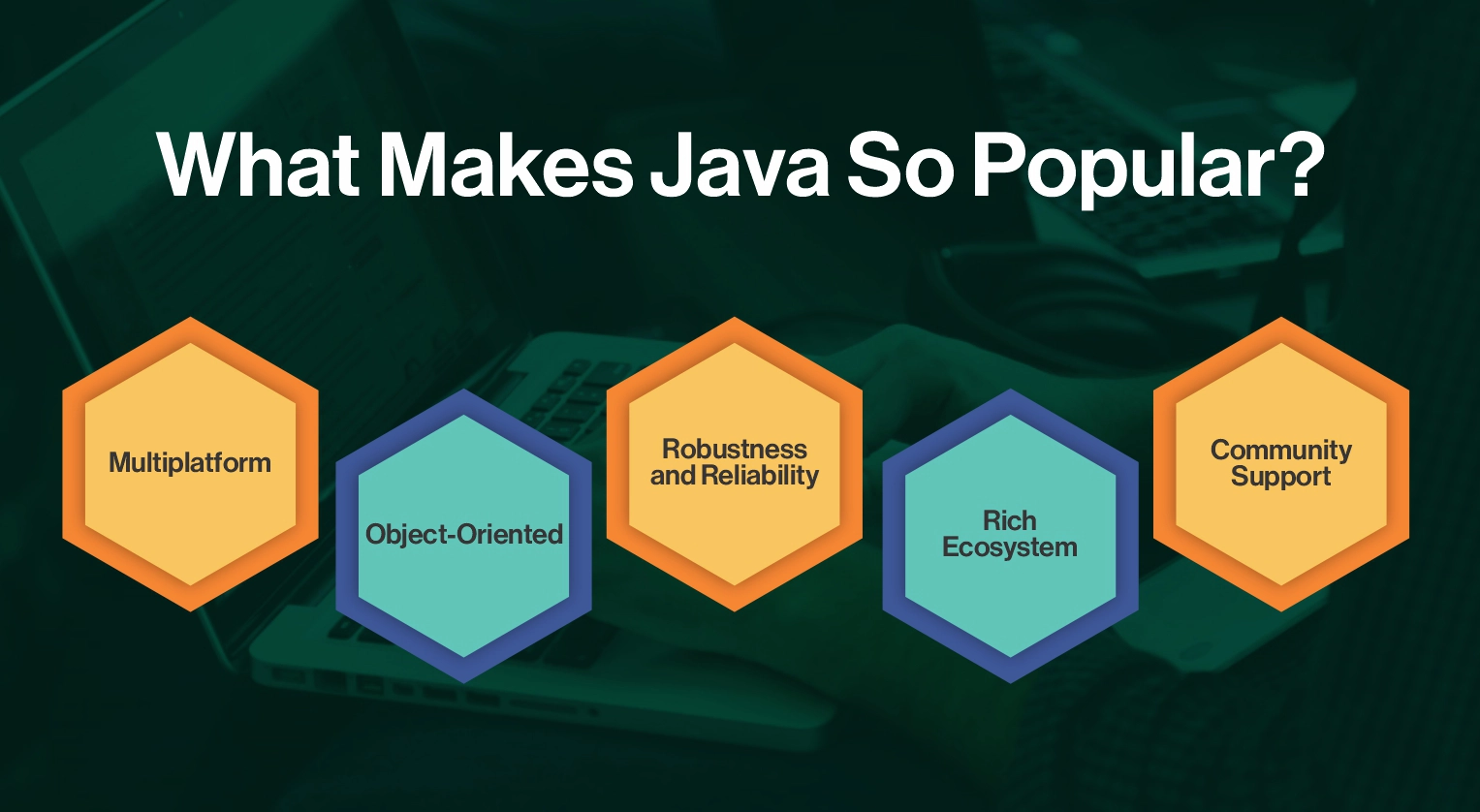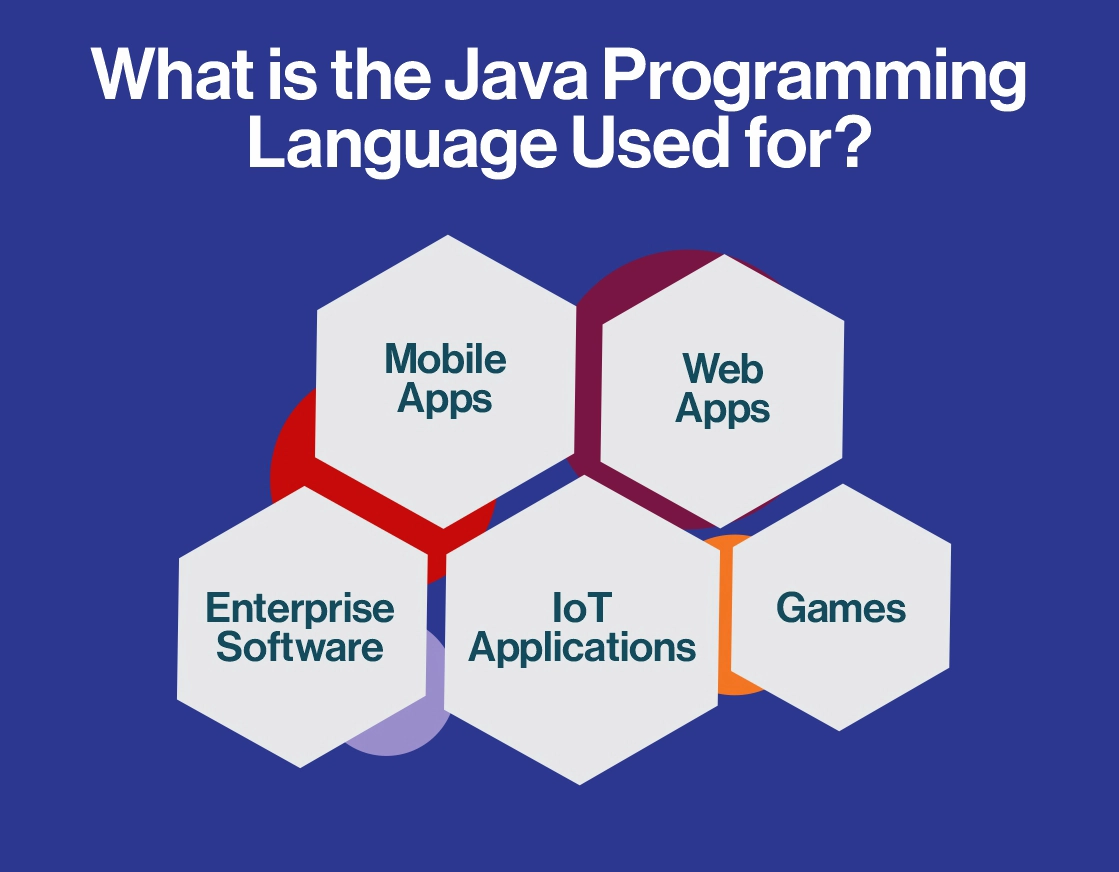In software development, Java stands as an enduring monument, revered for its adaptability and unwavering reliability. Since its inception, Java has evolved into a force, shaping the digital landscape with its platform-independent prowess and robust feature set.
What is Java?
High-level, object-oriented Java programming was developed by Sun Microsystems, which is now owned by Oracle Corporation. It was widely utilized in this field. Since its debut in 1995, Java has become one of the most popular programming languages due to its platform freedom, which enables programs to run on any device that has the Java Virtual Machine (JVM) installed.
Java is widely used for producing a variety of applications, such as desktop programs, corporate software, mobile apps (Android apps are mostly written in Java), online apps, and more. Large-scale server-side applications and web development frameworks like Spring and Hibernate also make heavy use of it. Additionally, Java is renowned for its robustness, security features, and large ecosystem of libraries and tools.
What Makes Java So Popular?

Multiplatform
Developers may create code on one platform and execute it on any other platform that has the Java Virtual Machine (JVM) installed thanks to Java's "write once, run anywhere" philosophy. This cross-platform compatibility greatly simplifies software development and deployment, as developers don't need to write separate codebases for different operating systems.
Object-Oriented
Java stresses the use of objects to represent data and methods to modify it since it is an object-oriented programming language. OOP ideas, such as encapsulation, inheritance, and polymorphism, help programmers create modular, reusable, and manageable code. This makes Java well-suited for building large-scale software systems and promotes good coding practices.
Robustness and Reliability
Because dependability was a top priority during the design process, Java contains features like type safety, exception handling, and automated memory management. These characteristics increase stability, reduce the risk of crashes and security flaws, and assist avoid frequent programming errors in Java programs.
Rich Ecosystem
Java offers an extensive ecosystem of tools, libraries, and frameworks that simplify development processes and offer solutions for a variety of application areas. From enterprise frameworks like Spring and Hibernate to libraries for GUI development (Swing, JavaFX), web development (Servlets, JSP), and more, numerous tools are available to Java developers to help them complete their projects more quickly.
Community Support
The growth and improvement of Java is actively contributed to by a substantial and lively developer community. This community support ensures that Java remains up to date with emerging technologies, receives timely bug fixes and security patches, and fosters knowledge sharing through forums, conferences, and online resources.
How Java Works?
Because Java is a multi-platform programming language, code created in it can be executed on several operating systems with just a single code.
A Java Development Kit, which is compatible with Windows, Linux, and macOS, is used to write Java code initially. Java is a language used by programmers to create code, which the kit converts into computer code that can be read by any device with the appropriate software. A compiler is responsible for making the device read the code.
High-level code, such as Java, is translated by a compiler into bytecode, an easily understood language by operating systems.
The device's installed Java Virtual Machine (JVM) then interprets this bytecode. This is how Java codes from device to device, and JVMs are accessible for most software and hardware platforms. Java virtual machines (JVMs) load, validate, and supply a runtime environment.
What Applications Does the Java Programming Language Have?

Java is a tremendously versatile programming language with applications across several industries.
Mobile Apps
Popular programming languages like Java are used to make mobile applications, particularly for the Android platform. Although Java is still the primary language used to construct Android apps, Kotlin is gaining traction as a substitute. Java is a great choice for developing intricate and feature-rich mobile applications because of its stability, independence from platforms, and vibrant ecosystem.
Web Apps
Web applications may be developed using Java on the client and server sides. On the server-side, Java web development frameworks like Spring, Struts, and JavaServer Faces (JSF) are commonly used to create scalable, secure, and high-performance web applications. For server-side web development, Java also offers technologies like Servlets, JavaServer Pages (JSP), and JavaServer Faces (JSF). Additionally, JavaScipt frameworks like AngularJS and React can be integrated with Java applications for client-side web development.
Games
While Java may not be as dominant in the game development industry as some other languages like C++ or Unity, it is still used for developing games, especially for mobile platforms. Java developers may use libraries such as LibGDX to create cross-platform games.
IoT Applications
Java is becoming more and more popular in the Internet of Things (IoT) field because of its security features, scalability, and independence from other platforms. With the advent of Java ME (Micro Edition) and Java SE Embedded, developers can leverage Java to build applications for embedded systems, IoT devices, and smart appliances.
Enterprise Software
Java is the backbone of many enterprise software systems due to its scalability, reliability, and robustness. A complete framework for creating enterprise-level applications is offered by Java Enterprise Edition (Java EE), formerly known as Jakarta EE. It has capabilities including web services, distributed computing, messaging, and more. Java frameworks like Spring Boot have also gained popularity for rapidly developing microservices-based architectures, which are prevalent in modern enterprise software development.
What is the Difference Between Java and JavaScript?
Java and JavaScript are two distinct programming languages with different purposes, despite their similar names. Some of the key differences between these two languages are:
For More Information: https://www.fiveriverstech.com/difference-between-java-and-javascript/
Final Word
With attributes such as multi-platform support, being object-oriented, a rich eco-system of libraries, frameworks, tools, and a briming community of Java developers make it the most accessible and easy to learn and use language.
However, if you have a project in mind, and want the best proponents of Java to help you realize your projects, you can reach out to FiveRivers Technologies. For more than 20 years, FiveRivers Technologies has assembled a skilled group of Java developers with extensive expertise in creating unique software solutions.

